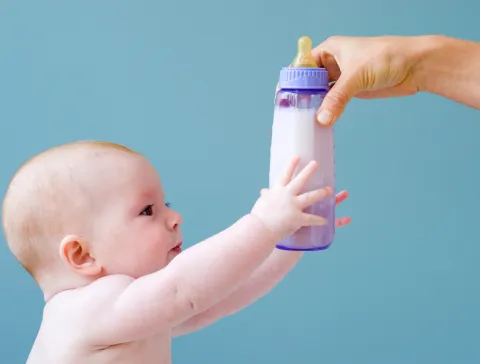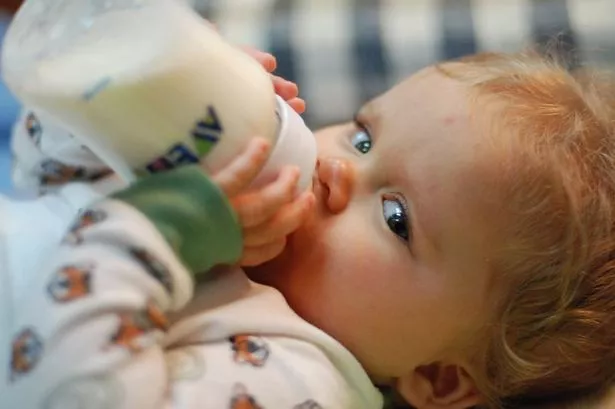When Does a Baby Stop Drinking Formula?
Formula feeding is a common practice among new parents. It is a convenient way to provide nutrition to a baby when breastfeeding is not possible or inadequate. However, as a baby grows and develops, they eventually stop drinking formula and start transitioning to solid foods. In this article, we will discuss the signs of when a baby stops drinking formula and the factors that influence this transition.
Signs of When a Baby Stops Drinking Formula
Signs that a baby has stopped drinking formula and is transitioning to solid foods may include:
- Increased hunger: As a baby transitions to solid foods, they may become more hungry and require more frequent feedings.
- Picky eating: Babies may become more selective about the foods they eat, and refuse to eat certain foods or textures.
- Decreased weight gain: If a baby is not gaining weight as expected, it may be a sign that they are not getting enough nutrition from formula.
- Increased saliva production: As a baby’s mouth grows and their teeth begin to emerge, they may produce more saliva and be more likely to drool.
- Stronger grasp: Babies may become more skilled at holding objects and may be able to grasp small pieces of food.
Factors Affecting When a Baby Stops Drinking Formula
There are several factors that can influence when a baby stops drinking formula and starts transitioning to solid foods:
- Age: Babies typically start transitioning to solid foods between 4 and 6 months of age, although this can vary depending on the baby’s individual development.
- Weight: Babies who are at a healthy weight may be ready for solid foods earlier than those who are underweight or overweight.
- Hunger: If a baby is frequently hungry, they may be ready for solid foods sooner.
- Digestion: Babies who have a strong and healthy digestive system may be better able to handle solid foods than those with weaker digestive systems.
- Interest: Babies who are interested in and curious about solid foods may be more willing to try them. The amount of breast milk a baby drinks may also play a role in the transition to solid foods. If a baby is consuming a lot of breast milk, they may not be ready for solid foods until later.
- Parental involvement: Parents can help to speed up the transition to solid foods by providing their baby with plenty of opportunities to explore and try new foods.
Choosing the Right Solid Foods for Your Baby
When a baby is ready to start transitioning to solid foods, it is important to choose the right foods to introduce them to. Here are some things to consider:
- Age: Choose foods that are appropriate for the baby’s age. For example, pureed fruits and vegetables are great for babies who are 4-6 months old, while mashed fruits and vegetables are better for babies who are 7-9 months old.
- Texture: Choose foods that are easy for the baby to chew and swallow. Pureed foods are best for babies who are not yet able to chew food, while mashed foods are better for babies who are able to mash small pieces of food with their gums.
- Nutrient density: Choose foods that are rich in nutrients, such as iron, vitamins A and C, and calcium. foods that are also easy to digest, such as bananas, avocados, and sweet potatoes.
- Safety: Choose foods that are safe for babies to eat. This includes foods that are fresh and uncontaminated, as well as foods that are not raw, such as cooked meat, fish, and eggs.
Conclusion
In conclusion, formula feeding is a common practice among new parents, but as a baby grows and develops, they eventually stop drinking formula and start transitioning to solid foods. This transition may be influenced by a number of factors, including age, weight, hunger, digestion, interest, and parental involvement. To ensure a smooth transition, it is important to choose the right solid foods for your baby and provide them with plenty of opportunities to explore and try new foods.

